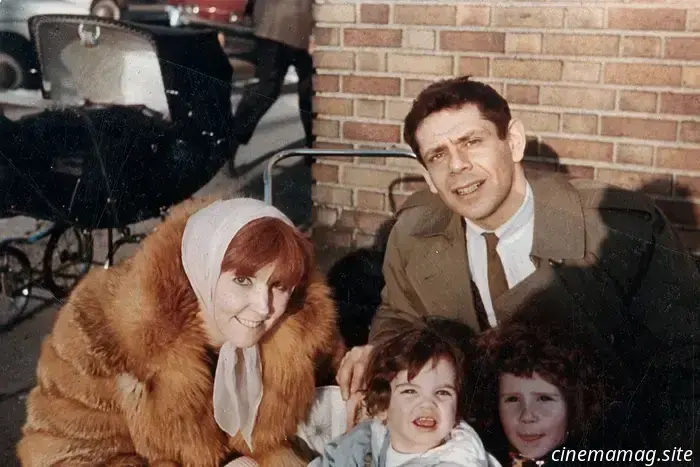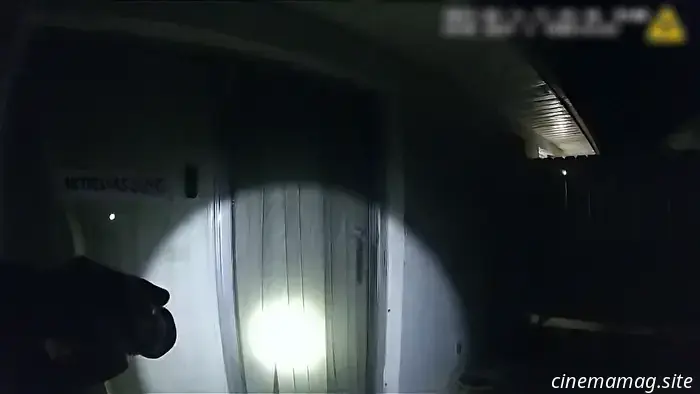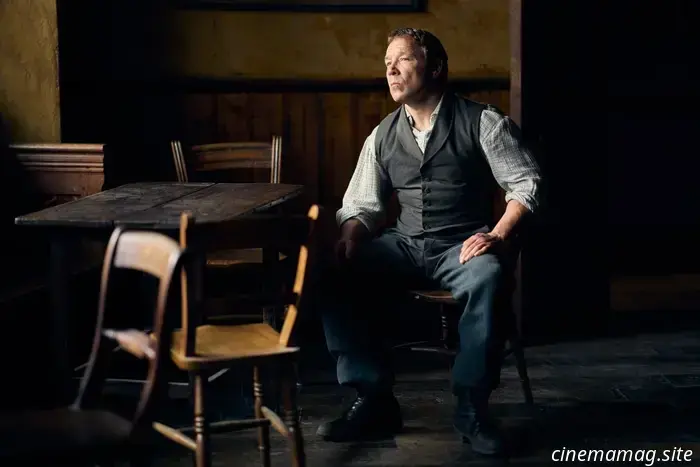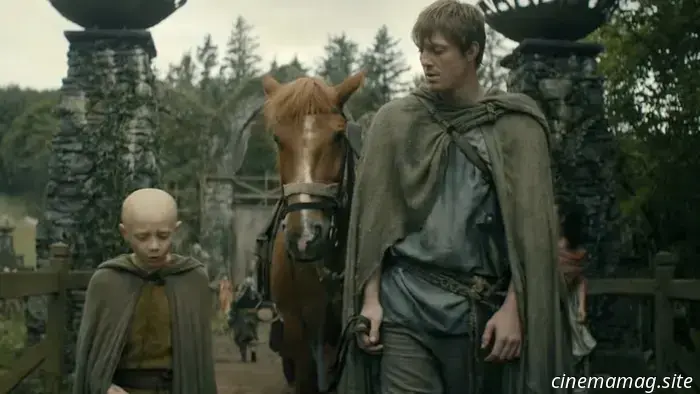
NYFF Review: In Stiller & Meara: Nothing is Lost, Ben Stiller Explores His Parents' Lives and Careers.
About midway through his reflective and sentimental documentary *Stiller & Meara: Nothing is Lost*, director Ben Stiller reveals that his parents––actors Jerry Stiller and Anne Meara––spent most of their life together sleeping in separate but adjoining bedrooms. This seemingly minor detail sheds light on their personal and professional relationship––both within the family’s beloved Upper West Side apartment and on television screens nationwide.
The husband-and-wife duo, whose comedic performances gained popularity on talk shows throughout the 1960s and 1970s, appeared to be an ideal couple: close, happy, and successful. However, they could not have been more different. Stiller had a passion for comedy and approached it with a meticulous work ethic, while Meara, who originated from a dramatic background, embraced freeform improvisation. As they raised their family, their famous routine raised many questions about their life behind closed doors. Were they truly happy in their marriage? How much of their persona was an act? And how did two competing yet complementary artists remain together for such a long time?
Following the passing of Jerry Stiller in 2020 from natural causes, five years after Meara's death, Ben began to ponder these types of questions. The timing felt appropriate. Amid the global pandemic, he had begun to reconnect with his wife, actress Christine Taylor, and with their two kids, who had returned to living together as a family. He also understood that their parents’ apartment would eventually need to be cleaned out and sold. This confluence of events and emotions inspired him to create a project that could encompass all these conflicting feelings and inquiries. “I just felt out-of-balance and unhappy and kind of disconnected––from my family, from kids––and just kind of a little bit lost,” he explains. “I started to reflect on my parents and the stress and tension I remember witnessing as a child, and the pressure they faced while working together and how they managed to stay together through it.”
Beginning and ending in the family apartment, Stiller uncovers a wealth of material alongside his older sister Amy. Their father had preserved nearly every photo, audio recording, and home video imaginable (hence the film's title), allowing them to sift through memories and share stories of their collective history. While recounting their parents’ backstories and including archival sketches, Stiller also documents aspects of his own career and family life, drawing connections––such as performing at the Ed Sullivan Theater––as he seeks to understand their early family life together. In an era filled with late celebrity documentaries, Stiller’s film might initially seem self-indulgent––an exercise in processing his grief and confusion more than a straightforward tribute to his parents with former colleagues and peers––but as one grasps the nuances of their relationship and the parallels to Stiller’s own life, his distinctive, personal, and mosaic approach feels impactful and serves as an artistic choice.
In this sense, *Nothing is Lost* resembles a living photo album, a loosely arranged collage interspersed with vacation snippets, random neighbors, audio recordings, and dinner discussions. These elements don’t always align and can occasionally disrupt the film’s flow, but Stiller steers clear of producing a polished, rapid tribute. The chaos of memory is part of the point. Like any skilled historian, he navigates the progression of their careers, sharing their witty exchanges and interactions through various clips and noting their eventual relocation to Los Angeles to pursue sitcom opportunities. However, he also courageously examines the more challenging aspects of his parents’ marriage––such as Jerry Stiller’s intense work ethic, Meara’s struggles with alcohol, and the couple’s ongoing quest for authenticity. As both Ben and Amy recall, it was often hard to discern whether their parents' arguments in another room were genuine or merely practice for an upcoming sketch.
Stiller isn’t entirely certain how those blurred lines affected him and Amy, but he acknowledges how his parents' fame and their personalities as theater kids eventually contributed to his own comedy and acting career. In various clips, he indicates how he frequently involved his family in his video sketches and had his mother act alongside him for his *SNL* audition tape. Their involvement feels less like a calculated nepotistic edge and more like a supportive group of comedy actors encouraging their son in his endeavors. However, Stiller’s rise in the industry significantly impacted Amy, as his burgeoning career cast a considerable shadow that became hard to escape. These reflections aren’t necessarily groundbreaking revelations but rather emphasize Stiller’s interest in exploring how each of them experienced their parents' love and attention differently.
Later in the documentary, Stiller realizes how little he learned from his father's shortcomings while raising his son, Quinn, and daughter, Ella, who reflect on their own experiences growing up as the children of actors. These staged discussions initially seem a bit decorative––an opportunity for Stiller to involve his kids in a personal project through casual conversations at the table or
Other articles
 The Perfect Neighbor Review: A Disturbing Critique of Stand-Your-Ground Legislation
Note: This review was initially published during our 2025 Sundance coverage. The Perfect Neighbor will be released in theaters on October 10 and on Netflix on October 17. The stand-your-ground law, which permits property owners to use lethal force to protect their homes from intruders, gained significant attention in 2005 when it was enacted in Florida.
The Perfect Neighbor Review: A Disturbing Critique of Stand-Your-Ground Legislation
Note: This review was initially published during our 2025 Sundance coverage. The Perfect Neighbor will be released in theaters on October 10 and on Netflix on October 17. The stand-your-ground law, which permits property owners to use lethal force to protect their homes from intruders, gained significant attention in 2005 when it was enacted in Florida.
 The first look at season 2 of A Thousand Blows features the return of Malachi Kirby, Erin Doherty, and Stephen Graham.
Prior to its return to Disney+ and Hulu this January, a set of first-look promotional images has been released online for the second season of Peaky Blinders creator Steven Knight's acclaimed…
The first look at season 2 of A Thousand Blows features the return of Malachi Kirby, Erin Doherty, and Stephen Graham.
Prior to its return to Disney+ and Hulu this January, a set of first-look promotional images has been released online for the second season of Peaky Blinders creator Steven Knight's acclaimed…
 New trailer for Nuremberg featuring Russell Crowe and Rami Malek.
Sony Pictures Classics has unveiled a poster and trailer for Nuremberg, the forthcoming adaptation by writer-director James Vanderbilt of Jack El-Hai’s book The Nazi and the Psychiatrist. The psychological…
New trailer for Nuremberg featuring Russell Crowe and Rami Malek.
Sony Pictures Classics has unveiled a poster and trailer for Nuremberg, the forthcoming adaptation by writer-director James Vanderbilt of Jack El-Hai’s book The Nazi and the Psychiatrist. The psychological…
 2025 BFI London Film Festival Review – The Ballad of a Minor Player
Ballad of a Small Player, 2025. Directed by Edward Berger. Featuring Colin Farrell, Fala Chen, Tilda Swinton, and Alex Jennings. SYNOPSIS: As his history and financial obligations begin to overwhelm him, a high...
2025 BFI London Film Festival Review – The Ballad of a Minor Player
Ballad of a Small Player, 2025. Directed by Edward Berger. Featuring Colin Farrell, Fala Chen, Tilda Swinton, and Alex Jennings. SYNOPSIS: As his history and financial obligations begin to overwhelm him, a high...
.jpg) Roofman, 2025. Directed by Derek Cianfrance. Features Channing Tatum, Kirsten Dunst, LaKeith Stanfield, Juno Temple, Peter Dinklage, Uzo Aduba, Ben Mendelsohn, Melonie Díaz, Lily Collias, Emory Cohen, and others.
Roofman, 2025. Directed by Derek Cianfrance. Features Channing Tatum, Kirsten Dunst, LaKeith Stanfield, Juno Temple, Peter Dinklage, Uzo Aduba, Ben Mendelsohn, Melonie Díaz, Lily Collias, Emory Cohen, and others.
 The trailer for A Knight of the Seven Kingdoms hints at stories featuring Dunk and Egg.
Following closely behind the poster and premiere announcement, HBO Max has released the initial trailer for A Knight of the Seven Kingdoms, the forthcoming Game of Thrones prequel series inspired by George R.R. Martin…
The trailer for A Knight of the Seven Kingdoms hints at stories featuring Dunk and Egg.
Following closely behind the poster and premiere announcement, HBO Max has released the initial trailer for A Knight of the Seven Kingdoms, the forthcoming Game of Thrones prequel series inspired by George R.R. Martin…
NYFF Review: In Stiller & Meara: Nothing is Lost, Ben Stiller Explores His Parents' Lives and Careers.
About midway through his reflective and heartfelt documentary Stiller & Meara: Nothing is Lost, director Ben Stiller shares that his parents––actors Jerry Stiller and Anne Meara––shared most of their life together while sleeping in separate yet connected bedrooms. This seemingly minor detail sheds light on the couple's personal and professional dynamic––both within the family's beloved Upper
